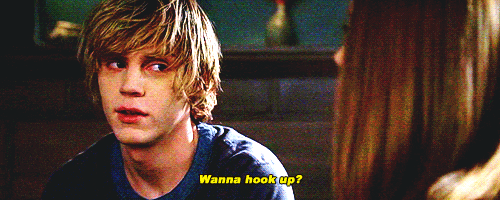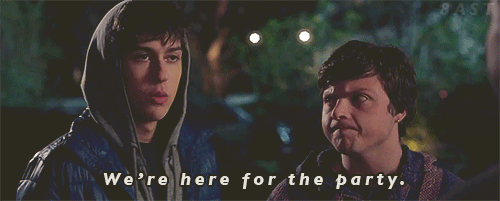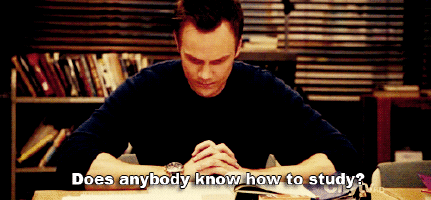Let’s think back about five or six years when you had time to watch copious amounts of television. You probably flipped through the channels and came across classics like St. Elmo’s Fire or National Lampoon’s Van Wilder. Pretty soon four hours had passed and you convinced yourself you knew everything you needed to know about college (unless you were one of those smart-ass preteens who knew that movies were just fiction). Thinking back on it now, all of those conclusions about college might seem pretty ridiculous. If you thought college consisted solely of Project X, binge-drinking and hooking up with someone different every weekend, you shouldn’t blame yourself. Blame the media, and college movies in particular, for their false and misleading portrayals of sex, partying and… oh yeah, studying.
Sex

Psychologists do research on the effect of graphic sexual content on young children, but what about when you’ve already hit your early teens? You know at least the basics of the act itself, but most likely don’t possess any real experience with it. The media finds the perfect time in our favorite films to try to convince you that everyone out there is doing the horizontal tango at this very second. “I definitely had a skewed vision of sororities and college in general because I thought everyone had sex, drank and did drugs,” Creighton freshman Morgan Dobersek said. “I think that so many movies about colleges are oversexualized.” According to the research of Martin Monto, a sociologist at the University of Portland, only 31.6% of college students admit to doin’ it with more than one person in the past year, and only half of college students have had sex with more than two people since turning 18. The moral of the story? Casual sex in college: not required, not even the norm.
Partying.

Sure, the National Association on Alcohol Abuse and Alcoholism tells us that 80% of college students drink, but that’s still not everyone. You’ll surely have more than four friends at school, so you most likely won’t be the only one who may decide to ditch the tequila shots. Many college students just like to work up a nice buzz after a long week of studying; they don’t always want to get blackout drunk like you’ll see in any cinematic frat party. “I definitely thought the parties were going to be huge and crazy, but they aren’t as big as they are in the movies,” Gonzaga freshman Elizabeth Terry said. “But there’s no Greek system [at Gonzaga] so maybe I would think differently if there were big frats here.”
These types of movies tend to show little to no diversity when it comes to the college social scene. Most college movies either focus on the Greek life at relatively big schools (I’m talking to you, Animal House) or top ten universities (like Legally Blonde). This just hypes up the party factor or the prestigious factor, when the fact of the matter remains that most schools fall somewhere in the middle.
Free Time/Studying.

Many of the movies that depict college life more realistically, like Good Will Hunting or The Social Network, gear themselves toward an older audience due to serious tones and unflinching portrayals of the complex problems college students face (particularly Good Will Hunting, which boasts 154 F-bombs at a rate of 1.22/minute). While PG-13 ratings protect us against nudity and language, couldn’t the depictions of literally everyone partying, drinking and climbing up those stairs with a member of the opposite sex be even more harmful?
Of course, movies also don’t show the one thing that most students go to college to do: study. Sure, it’s not exactly the most interesting material for a box office hit, but the lack of studying along with the hyper-partying doesn’t exactly give adolescents the right idea about college. “I’ve discovered that I’m less likely to have a wild party experience and much more likely to have a mental breakdown in the library,” University of Wisconsin-Green Bay sophomore Taylor Ponczoch said. Mental health in college? Rarely regarded at all on the big screen.
People often write off films like Legally Blonde for their sappy appreciation of blonde ditzy girls (how did she get into Harvard Law, anyway?), but films like these might actually balance the most positive and realistic aspects of college. When people give Elle Woods shit, she doesn’t back down. When her professor makes a move on her, she tells someone. These real-life situations take place outside the frat quads, and more movies could at least help out future freshies by showing them the real deal before they hit campus.
So how can you find out about these more realistic situations before freshman move-in day? Talk to someone older than you. “College movies either portray college students as morons or geniuses, but usually drunk morons. I never bought into that because people who came back and visited told me differently and acted differently,” Oakton Community College sophomore Declan Mulroy said. So if someone from your high school asks you about college, tell them the truth: fun and hard work come hand in hand. And, if you haven’t already done so, consider pinning a picture of your new #rolemodel Elle Woods up in your dorm room.



















